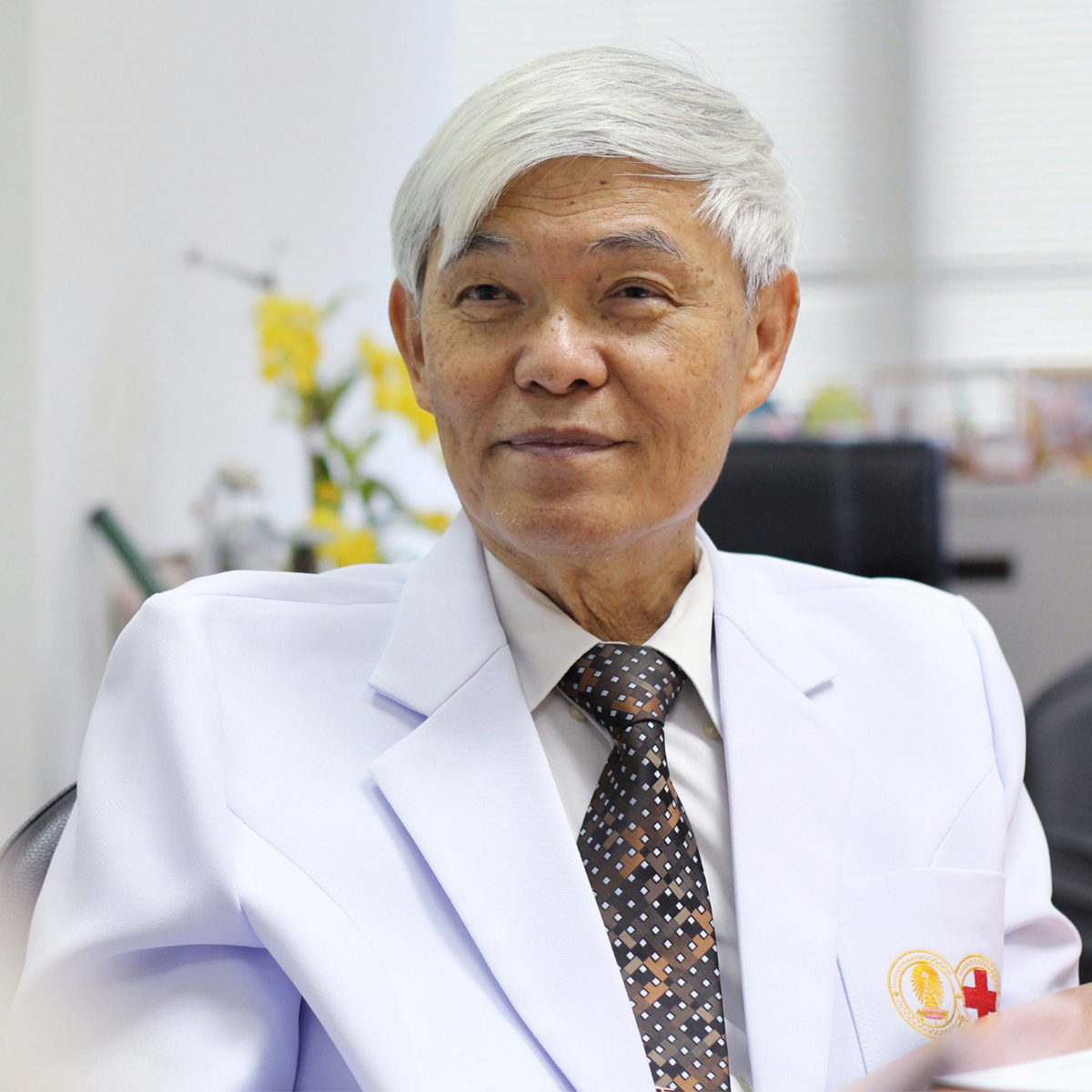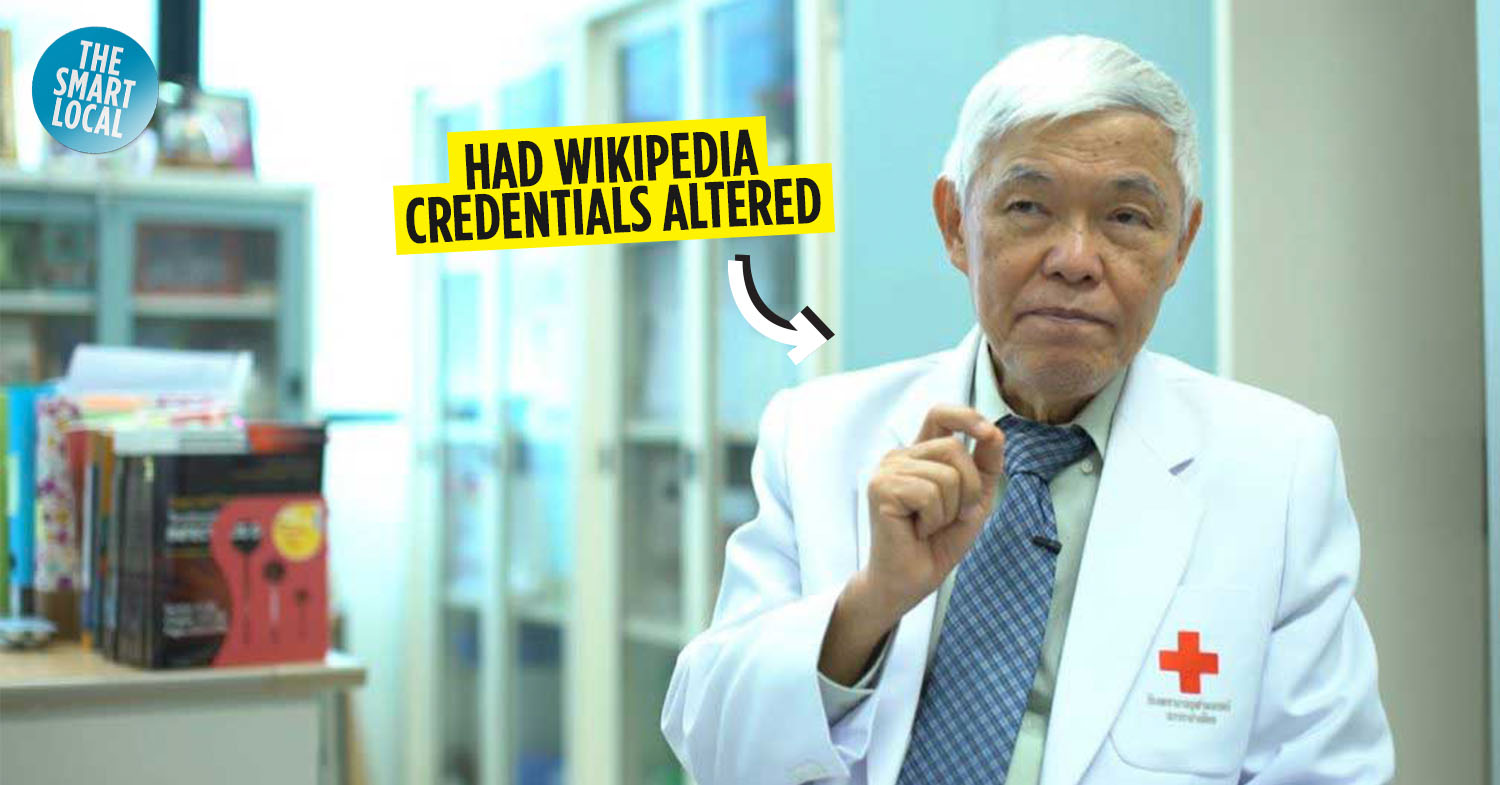“Sinovac salesman” added to virologist’s credentials
Wikipedia was a student’s best friend, but disliked by many teachers. While we all browsed through a Wikipedia page’s “References” section to find credible information for our papers, we were also discouraged to use the website itself as a reference due to the fact that anyone can edit the text.
While the website’s flexibility can allow for consistent updates, it can also lead to the spread of misinformation.
Recently, a netizen added “Sinovac salesman” to the “Credentials” section on a Thai virologist’s Wikipedia page. He is now facing legal action.
Here are the details surrounding the ongoing investigation.
Recent Covid-19 stories:
- Fully vaccinated nurse dies from Covid-19
- No talking on trains allowed as Covid-19 cases rise
- Thailand announces vaccine changes
- Old BKK clinic turned into Covid-19 shelter
Netizen faces legal charges for changing virologist’s credentials
A netizen, said to be a 24-year-old man, allegedly added “Sinovac salesman for the Prayuth Chan-o-cha administration” to a well-known virologist’s, Dr. Yong Poovorawan, “Credentials” on Wikipedia. Dr. Poovorawan’s representatives have filed claims against the individual, who is now facing charges for defamation after the police arrested them on 12th July 2021.
The Thai police have since arrested the individual at home, as well as confiscated his phone, according to the National News Bureau of Thailand.

Dr. Poovorawan
Images for illustration purposes only
Image credit: Chulalongkorn University
The virologist recently faced backlash after recommending the Sinovac Covid-19 vaccine as a third “booster” shot. Critics say he should have instead encouraged the import of other inoculations which are said have a higher efficacy rate against the Delta Variant, reported The Thaiger.
Defamation laws in Thailand
Making false allegations – disguised as “facts” – against an individual that could harm their reputation and credit falls under the legal definition of “defamation” in Thailand.
As long as “defamer” is aware that the information they are spreading “should be false”, they can be charged for defamation, as written in Siam Legal.
Per Section 423 of the Thai Civil Commercial Code, if the defendant is found guilty of defamation, they would need to compensate for any and all damages caused by the spread of misinformation.
Finding healthy emotional outlets in difficult times
This situation has illustrated that our words can sometimes result in serious consequences, as well as that negative feelings need to be dealt with in a healthy way.
The current situation has truly been difficult for many, and we can empathise with the anxiety that comes along with it. So, it’s important to process difficult emotions – whether it be towards the pandemic or an individual – in a way that is not harmful for you, or those around you.
We hope that both respective parties can move forward.
Cover image adapted from: CPF
Images for illustration purposes only
Enjoying The Smart Local Thailand? Follow us on Facebook and Instagram for more stories like this.
